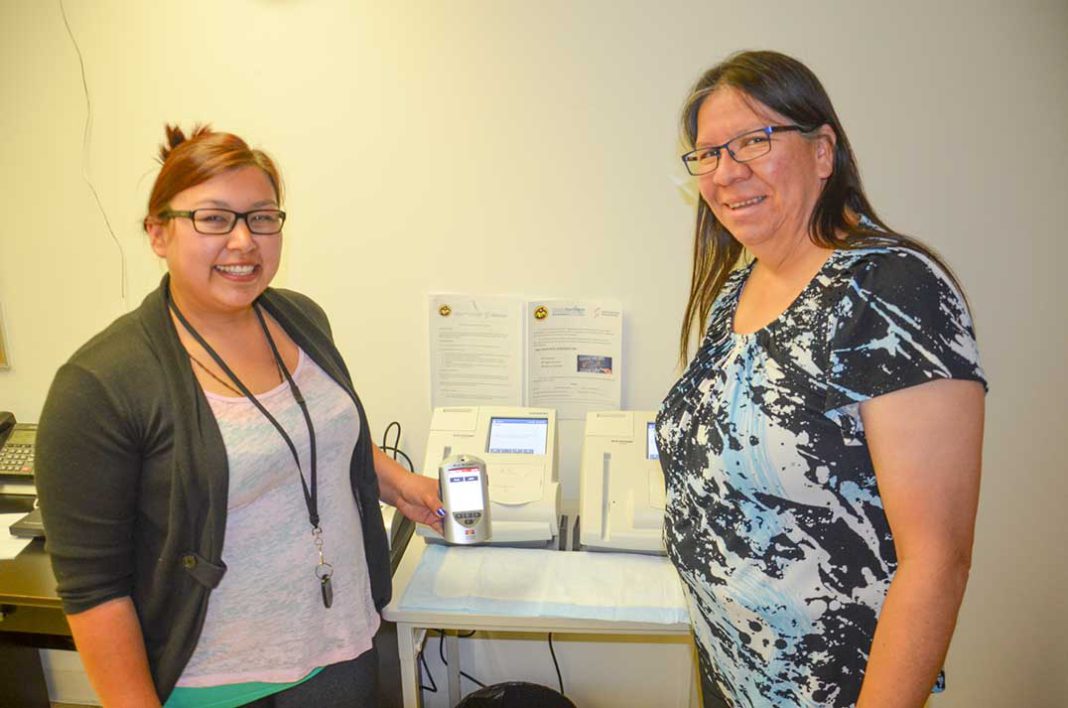WIKWEMIKONG—The incidence of diabetes is at epidemic proportions across the globe, but among First Nations the numbers have tended to be even greater, even more worrisome still is the number of undiagnosed diabetics and those who are on the cusp of becoming diabetic. Prevention is much less expensive and debilitating than treatment after the fact, as the kidney damage that too often comes with the disease can lead to the need for dialysis and even amputation of limbs.
A program underway in Wikwemikong is seeking to get a better handle on the numbers with a number of goals in mind, not the least of which is demonstrating the need for a dialysis unit based in Wikwemikong.
“Our chronic kidney disease initiative is a partnership with the Ontario Renal and Health Sciences North phrenology program,” said Mary Jo Wabuno, Health Services Director of the Wikwemikong Health Centre. “We have been lobbying for funding and exploring opportunities to see if we can establish a dialysis unit in our community.”
It was about four years ago that Wikwemikong Chief Duke Peltier came in to see what might be possible to make that a reality.
“We needed sound numbers,” in order to establish the business case for the unit, pointed out Ms. Wabuno. “Since then we have been travelling back and forth in our lobbying efforts exploring the potential with Health Sciences North (HSN).”
Through the program, two nurses from HSN and one local nurse have been collecting blood samples in order to build a database on the numbers of diabetics and their kidney function. The process is incredibly simple, thanks to a couple of high-tech machines that can analyse the information from the blood samples and a small urine sample.
“The whole process takes about 10 minutes,” said Ms. Wabuno.
Through the program, the WHC hopes to screen not only for diabetes, but for hypertension and kidney disease.
“Our nurse will do intake,” said Ms. Wabuno. “Anybody coming into our clinic can see her, but we are also doing outreach activities as well.”
Although establishing the numbers for a local dialysis unit is important, even more paramount is the early detection of diabetes and kidney function issues. “The most important factor is prevention,” said Ms. Wabuno. If the issues are detected early, those with preconditions will have the heads up that might lead them to adopt lifestyle and health strategies that could mitigate the symptoms. “We would really prefer to catch it before it becomes a serious problem.”
The program will seek to collect data from as many clients as possible, with a target of at least 500 samples collected within one year. “I am sure we will reach that goal,” said Ms. Wabuno confidently. The main days for the testing will be three days a week, Monday, Wednesday and Friday.
“Anyone who has been flagged will be referred to the appropriate health professional,” she said.
As for the dialysis unit, having it based in the community will prove to be a major boon to local residents, as the stress of travelling to Sudbury for the service places a strain on both the patients and their families.




